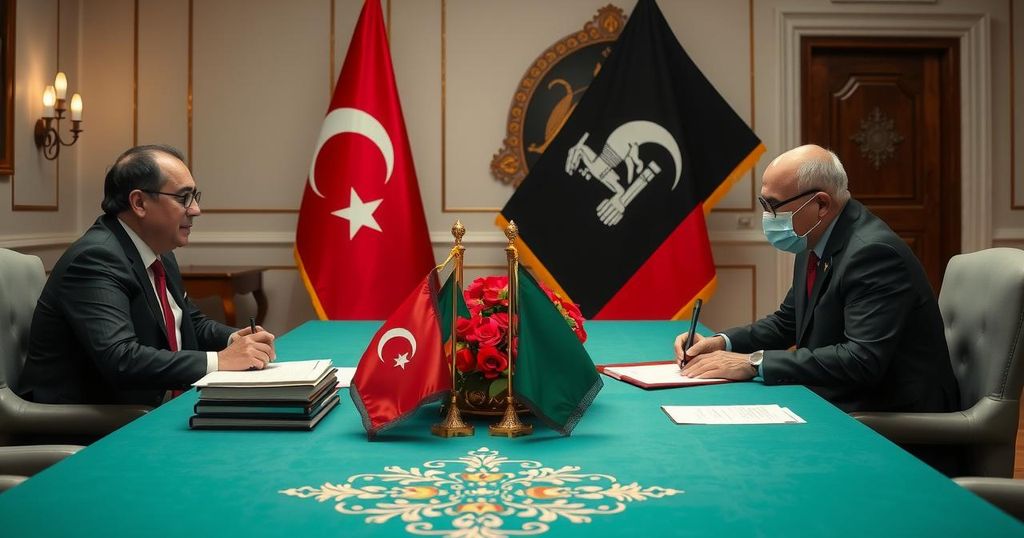Libyan Rivals Convene in Morocco to Address Electoral Disputes

In a consultative meeting in Bouznika, Morocco, Libyan parliamentary representatives and the Tripoli-based High Council of State engaged in discussions to resolve electoral disputes, aiming to establish a path towards elections. Moroccan Foreign Minister Nasser Bourita underscored the necessity of an internal solution, while the UN initiated a technical committee to navigate Libya’s political crisis. These talks contribute to broader efforts to unify Libya’s fragmented governance since Gaddafi’s ouster in 2011.
On Wednesday, representatives from the Libyan Parliament and the Tripoli-based High Council of State convened in Bouznika, Morocco, in a consultative meeting aimed at resolving electoral disputes. Moroccan Foreign Minister Nasser Bourita emphasized that the meeting seeks to facilitate elections that would dissolve the duality within Libyan institutions. He also highlighted the importance of international assistance in establishing a national unity government while maintaining that the solution must originate from Libyan stakeholders themselves.
This dialogue in Morocco is part of ongoing initiatives to lay the groundwork for elections capable of addressing Libya’s prolonged political strife. Since the ousting of Muammar Gaddafi in 2011, Libya has experienced significant instability, resulting in a bifurcation of governance between the internationally recognized Government of National Accord in Tripoli and Khalifa Haftar’s forces based in Benghazi. Past discussions in Morocco have previously led to the establishment of criteria for appointing leaders to sovereign positions, underscoring its role as a crucial platform for conflict resolution.
The United Nations Support Mission in Libya (UNSMIL) has recently formed a technical committee of Libyan experts, tasked with outlining key milestones for a consensus-based government. This strategic collaboration is essential for mitigating the entrenched political crisis and striving towards a unified electoral process. The upcoming elections represent a significant opportunity to navigate Libya towards stability and democratic governance.
The Libyan political landscape has been fragmented since 2011 following the removal of Muammar Gaddafi, leading to decades of civil unrest and divergent governance structures. Currently, Libya is split between two main factions: the Tripoli-based Government of National Accord, recognized internationally, and the rival administration led by military commander Khalifa Haftar based in Benghazi. Negotiation efforts have intensified, particularly in Morocco, which has emerged as a key mediator, facilitating talks and agreements aimed at unifying vying political entities in the country and paving the way for sustainable elections.
The recent consultative meeting in Morocco illustrates important progress in the ongoing efforts to resolve Libya’s political discord and prepare for potential national elections. The calls for an internally-driven solution, supported by international partners, reflect an understanding that genuine reconciliation is integral to establishing a lasting political framework. With a UN-backed technical committee now involved, Libya’s path towards unity and stability appears to be cautiously optimistic as stakeholders seek to end the existing division and chaos.
Original Source: www.aa.com.tr








